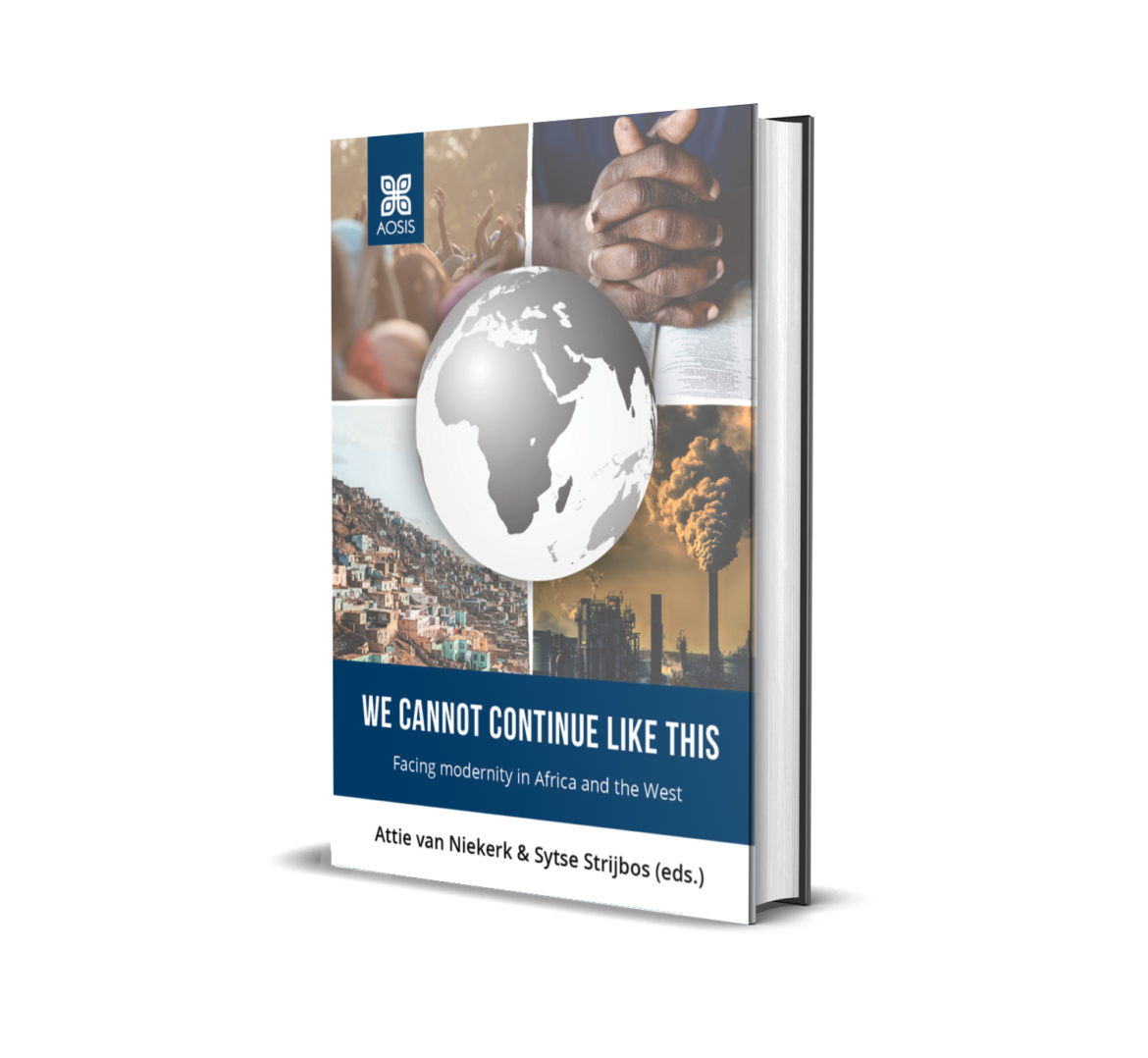The book, We cannot continue like this: Facing modernity in Africa and Europe, published by AOSIS Scholarly Books, is based on the view that the present trajectory of modern development cannot continue as it is now because it is ecologically unsustainable, it continues to enlarge the gap between rich and poor, and the decolonialisation movement has drawn our attention again to the specific role of religion, culture and value in human affairs and the need for a robust element of indigenisation and contextualisation. This book is strongly focused on the context of Africa, with two chapters that are written by authors from the Netherlands, for the purpose of presenting a North-South dialogue. The book contains reflection on approaches followed in building sustainable human communities in general and reflection on specific efforts to solve sustainability issues. It seeks to integrate academic reflection and insights gained from practical involvement with sustainability issues in local communities and low-income households, with contributions from Theology and Natural and Social Sciences.
Copyright (c) 2021 Attie S. van Niekerk, Sytse Strijbos (Volume editor)
We cannot continue like this. Facing modernity in Africa and the West is a scholarly book strongly focused on the context of Africa, with two chapters that are written by authors from the Netherlands for the purpose of a North-South dialogue. The main thesis of the book is based on the insight that the trajectory of modern development ought not to continue as it is. It is ecologically unsustainable and continues to enlarge the gap between rich and poor. The book centres on an academic analysis of current development practices, mostly in Africa. It addresses four topics that are often neglected in studies on development and sustainability: listening to voices from Africa to counter the hegemony of the Global North; recognising the importance of spiritual issues in the secular affairs of society; deriving theory from data that was obtained and analysed in a systematic way, and was compared with existing theories; and illustrating the importance of households rather than just governments, businesses or academic institutions. The manuscript seeks to integrate academic reflection and insights gained from practical involvement with sustainability issues in local communities and low-income households, with contributions from Natural and Social Sciences and Theology. The authors respond to the question: How can modern science and technology help to solve dilemmas such as unsustainable development?

